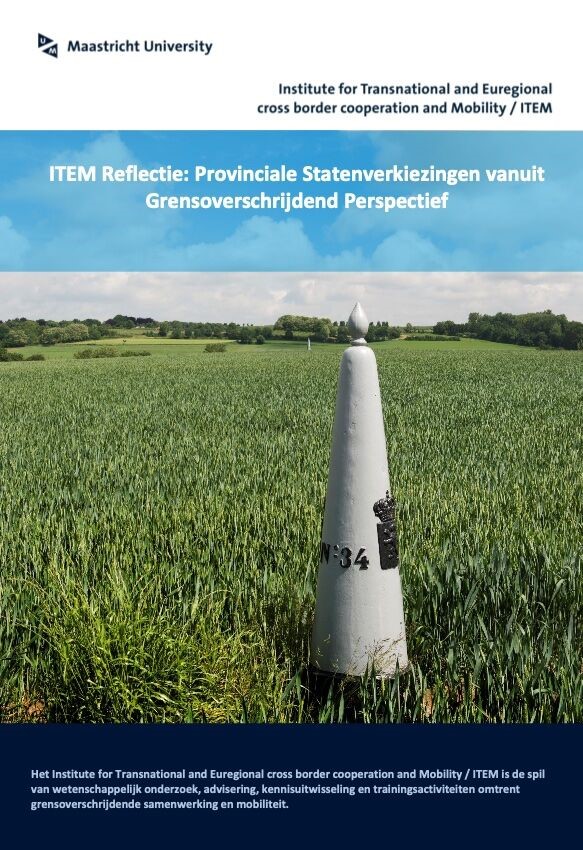Cross-border cooperation plays a modest role in the upcoming Provincial Council elections. Remarkably, also in the provinces bordering a neighbouring country. This is according to a thematic analysis by expertise centre ITEM, affiliated to Maastricht University, of 56 party programmes from seven of the 12 Dutch provinces that border a neighbouring country. The researchers react with surprise, because the COVID pandemic showed precisely that the current organisation of cross-border cooperation is not robust enough on several fronts.
Where cross-border cooperation does get mentioned in party programmes, it is often from an economic or cultural angle. Especially cross-border aspects in the field of mobility and labour are dominant themes. Paragraphs dealing with the border region or cross-border cooperation therefore mostly fall under the Economy chapter.
The researchers call it striking that apart from substantive objectives, organisational issues hardly recur in the party programmes. During the COVID pandemic, it was precisely the current organisation of cross-border cooperation that proved not strong enough.
On crucial issues such as energy transition or sustainability of healthcare, coordination with neighbouring countries is not even mentioned. Party manifestos do suggest the possible siting of (small) nuclear power plants, but without reference to necessary consultation with neighbouring countries on this politically sensitive subject. Plans for cross-border wind farms or solar meadows – and the participation of residents on the other side of the border in them – are not mentioned at all.
Earlier ITEM research already showed that precisely because of a lack of coordination on this point, hardly any cross-border energy projects get off the ground. Moreover, it leads to frustration among many residents of border regions.
Cross-border cooperation
That the actual organisation of cross-border cooperation is taken up in so few provinces surprises the researchers. For instance, they are surprised that the party programmes in the provinces on the German side of the Netherlands do not make any concrete connection with the Borderland Agenda between North Rhine-Westphalia and the Netherlands, or with the enhanced cooperation between the Netherlands and Lower Saxony. An enhanced cross-border structure was agreed between the Netherlands and Flanders as recently as January to address obstacles and opportunities more effectively.
Pim Mertens, scientific coordinator at ITEM, points to the recent discussion surrounding the paediatric surgery speciality that might have to disappear from the city of Groningen. “Between Maastricht, Liège and Aachen, a solution has been sought through a Euroregional Children’s Surgery Centre. It is also these kinds of cross-border solutions and opportunities where provincial governments can make a concrete difference.”
“The first Euroregion in Europe was born on the border between the Netherlands and Germany, yet this concept is relatively little mentioned,” says Prof Anouk Bollen-Vandenboorn, director of ITEM. “ITEM’s various studies repeatedly show that a good organisation of cross-border cooperation is actually necessary and it cannot be taken as a given. In this organisation, the provinces have an important and proactive role to play, both in a Euroregional context with neighbouring regions and in relation to the State, Benelux and Europe.”

